Use common table expression and generate date range with from and to date and than use CTE as left join to actual table. I haven't used user_id filter in left join so apply it to your query:
DECLARE @TMEP TABLE
(
[Date] DATE,
[IN] VARCHAR(10),
[OUT] VARCHAR(10)
)
INSERT INTO @TMEP VALUES ('2014-11-11','7:30','5:30')
INSERT INTO @TMEP VALUES ('2014-11-12','7:30','5:30')
INSERT INTO @TMEP VALUES ('2014-11-13','7:30','5:30')
INSERT INTO @TMEP VALUES ('2014-11-14','7:30','5:30')
INSERT INTO @TMEP VALUES ('2014-11-15','7:30','5:30')
INSERT INTO @TMEP VALUES ('2014-11-18','7:30','5:30')
INSERT INTO @TMEP VALUES ('2014-11-19','7:30','5:30')
INSERT INTO @TMEP VALUES ('2014-11-20','7:30','5:30')
INSERT INTO @TMEP VALUES ('2014-11-21','7:30','5:30')
INSERT INTO @TMEP VALUES ('2014-11-22','7:30','5:30')
INSERT INTO @TMEP VALUES ('2014-11-25','7:30','5:30')
INSERT INTO @TMEP VALUES ('2014-11-26','7:30','5:30')
INSERT INTO @TMEP VALUES ('2014-11-27','7:30','5:30')
INSERT INTO @TMEP VALUES ('2014-11-28','7:30','5:30')
INSERT INTO @TMEP VALUES ('2014-11-29','7:30','5:30')
INSERT INTO @TMEP VALUES ('2014-12-1','7:30','5:30')
INSERT INTO @TMEP VALUES ('2014-12-2','7:30','5:30')
INSERT INTO @TMEP VALUES ('2014-12-3','7:30','5:30')
INSERT INTO @TMEP VALUES ('2014-12-4','7:30','5:30')
DECLARE @FromDate DATE
SET @FromDate = '2014-11-11 06:00:00.000'
DECLARE @ToDate DATE
SET @ToDate = '2014-12-11 06:00:00.000'
;WITH CTE_TableDate ([CTEDate]) as
(
SELECT @FromDate
UNION ALL
SELECT DATEADD(DAY,1,CTEDate) FROM CTE_TableDate WHERE [CTEDate] < @ToDate
)
SELECT
CTE_TableDate.CTEDate,
CASE WHEN DATEPART(DW, CTE_TableDate.CTEDate) = 7 THEN 'SATURDAY'
WHEN DATEPART(DW, CTE_TableDate.CTEDate) = 1 THEN 'SUNDAY'
ELSE TEMP.[In] END AS [IN],
CASE WHEN DATEPART(DW, CTE_TableDate.CTEDate) = 7 THEN 'SATURDAY'
WHEN DATEPART(DW, CTE_TableDate.CTEDate) = 1 THEN 'SUNDAY'
ELSE TEMP.[OUT] END AS [OUT]
FROM CTE_TableDate
LEFT JOIN
(
select
[Date],
[IN],
[OUT]
from
@TMEP) TEMP
ON
CTE_TableDate.CTEDate = TEMP.[Date]
